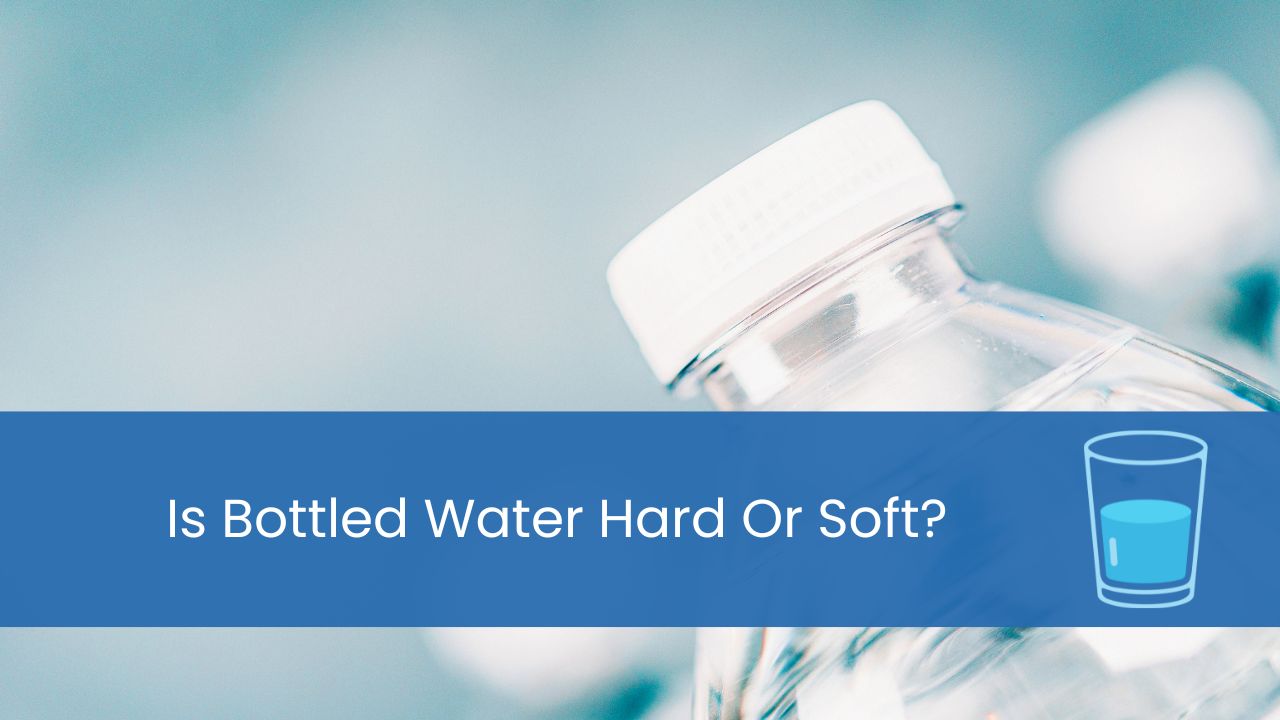Do you ever wonder if the bottled water you’re drinking is hard or soft? Understanding the difference between these two types of water can help you make informed decisions about which type to choose for your daily consumption. Hard and soft water have different characteristics that can impact taste, health, and even household appliances. So, let’s dive into the world of bottled water and discover whether it’s hard or soft.
Firstly, it’s important to understand what defines hard and soft water. Hard water contains high levels of minerals such as calcium and magnesium, while soft water has lower mineral content. These minerals are naturally present in most sources of drinking water but vary in concentration depending on location.
The taste and texture of each type are distinct; hard water tends to be more alkaline with a slightly metallic taste, while soft water is usually neutral or slightly acidic with a smoother mouthfeel. Knowing the differences between these two types will help you find the best option for your personal preferences and needs.
Key Takeaways
- Bottled water can be either hard or soft depending on its mineral content.
- Soft water is better for skin, hair, and household appliances, while hard water can cause mineral buildup and damage.
- Solutions for hard water include using a water softener or drinking filtered or distilled water, while obtaining soft water can be done through a water softener or choosing bottled water with low mineral content.
- The mineral content in bottled water can be tested using a TDS meter or sending a sample to a lab for analysis.
Table of Contents
- Key Takeaways
- What Is Hard Water?
- What Is Soft Water?
- Hard Water Vs Soft Water
- Is Bottled Water Soft Water Or Hard?
- Conclusion
What Is Hard Water?
Do you know what hard water is and how it can affect your daily life? Hard water contains a high concentration of minerals like calcium and magnesium that have dissolved in the water.
This can make it difficult to produce suds when washing clothes or dishes, leading to increased detergent usage. Hard water can also leave behind mineral buildup on faucets, showerheads, and appliances which can cause them to break down faster.
If you’re experiencing issues with hard water in your home, there are a few solutions available. One option is to install a water softener which works by removing the excess minerals from the water through an ion exchange process.
Another alternative is to use filtered or distilled water for drinking and cooking purposes. However, it’s important to note that using plastic bottles for your drinking water may not be the best solution due to potential environmental implications.
What Is Soft Water?
Soft water is like a gentle breeze, easing the burden of hard minerals and leaving behind a refreshing purity. Unlike hard water, it doesn’t contain high levels of calcium and magnesium. This makes it better for your skin and hair, as well as your household appliances that come into contact with water.
There are several ways to obtain soft water. One way is to use a water softener, which removes the hard minerals from the water through a process called ion exchange. Another option is to drink filtered or distilled water instead of tap water, which may contain higher levels of minerals.
No matter how you choose to get your soft water fix, you’ll be able to enjoy its refreshing taste without worrying about any harmful effects on your health or home.
Hard Water Vs Soft Water
Switching to soft water can significantly improve the health and appearance of your skin and hair, leaving you feeling refreshed and revitalized. Unlike hard water, which contains high levels of calcium and magnesium ions, soft water has been treated to remove these minerals. This means that when you shower or wash your face with soft water, it won’t leave behind any unwanted residue that can clog pores or irritate sensitive skin.
To truly understand the benefits of switching from hard to soft water, try conducting a simple test at home. Fill two glasses with tap water – one with hard water and one with filtered or distilled water (which’s typically softer). Then dip a bar of soap into each glass and see which produces more lather. The soap will lather far more in the soft water glass because there are fewer minerals present to interfere with the cleansing process.
Investing in a good quality water softener can be an excellent way to achieve these results on a larger scale throughout your home. In addition to improving skin and hair health, choosing filtered or distilled over hard tap water can also help avoid damage to appliances due to mineral buildup over time, save money on cleaning products since they work more effectively in softer waters, and lead to noticeable improvements in taste for those who drink tap as opposed to bottled beverages.
Is Bottled Water Soft Water Or Hard?
If you’re curious about the mineral content of your favorite bottled beverage, it’s worth noting that some brands may contain more dissolved solids than others – so while you may not be drinking hard water per se, you could still be consuming more minerals than if you were to opt for a filtered or distilled variety.
For example, Nestle Pure Life is a popular brand of bottled water that is considered soft because it has lower levels of calcium and magnesium. However, other brands may have higher concentrations of these minerals, making them closer to hard water.
It’s important to note that not all bottled water is created equal. Some companies use different filtration methods or source their water from unique locations. For instance, Japanese bottled waters like Suntory and Fiji are known for having low mineral content due to their origins in volcanic regions.
If you’re curious about the mineral content in your bottled water, you can do a simple home test by using a TDS (total dissolved solids) meter or sending a sample to a lab for analysis. Ultimately, whether your bottled water is considered hard or soft depends on the specific brand and its mineral composition.
Conclusion
Congratulations! You now know all about the difference between hard and soft water.
Remember, hard water contains high levels of minerals like calcium and magnesium, while soft water has low levels of these minerals.
But what about bottled water? Well, it depends on the brand.
Some bottled waters are sourced from areas with naturally soft water, while others may be treated to remove minerals and qualify as soft water.
So next time you’re at the store deciding which bottle of water to buy, take a closer look at the label to see if it’s hard or soft.
Happy hydrating!

Audrey McGill
About The AuthorMeet Audrey, the water-enthusiast behind WeLikeWater.com. Her love for all things H2O inspired her to create this laid-back space where folks can dive into the world of water. From the fizzy to the calm, Audrey's been on a journey through every ripple and wave, and she's eager to share her discoveries.

